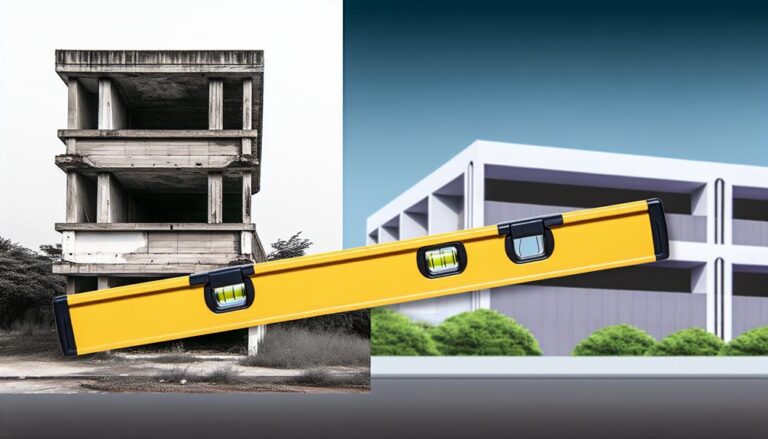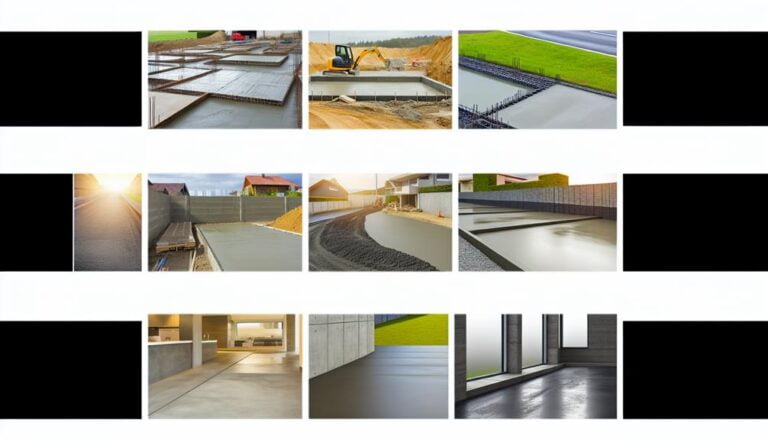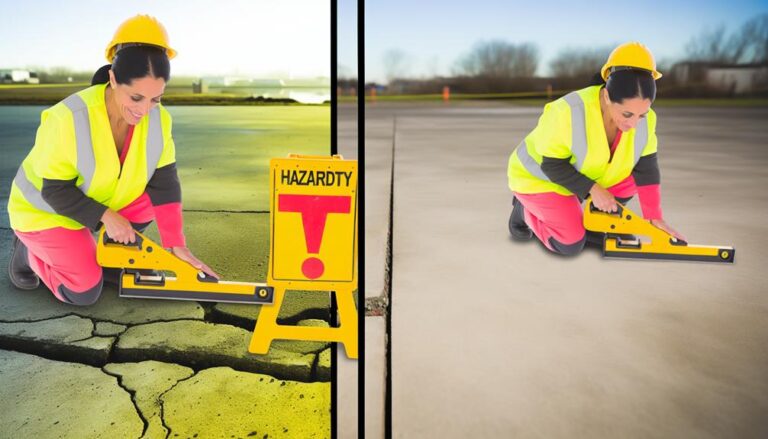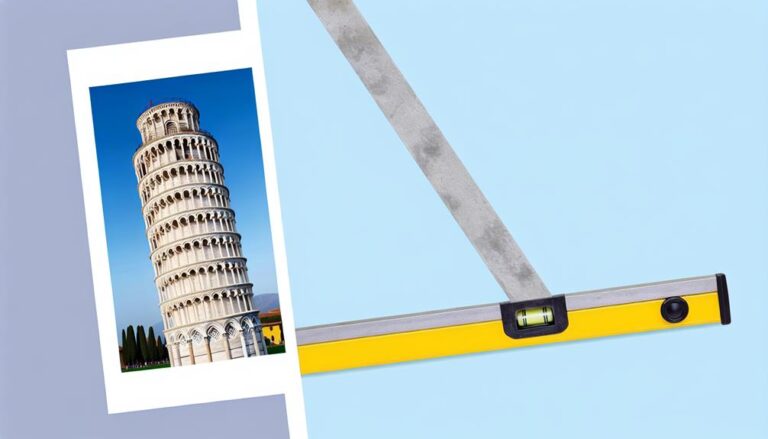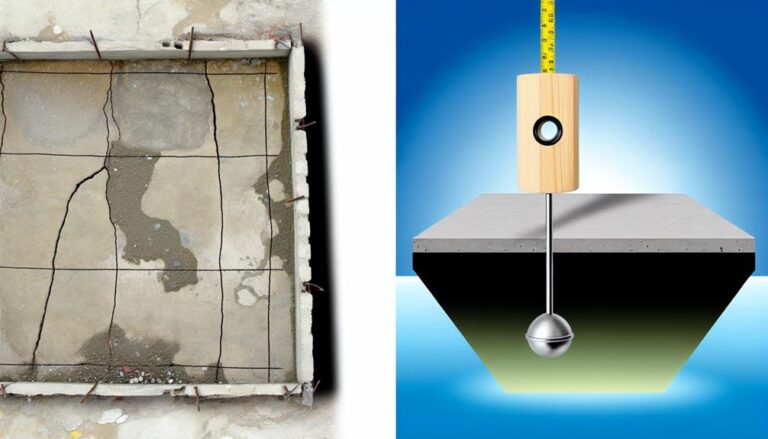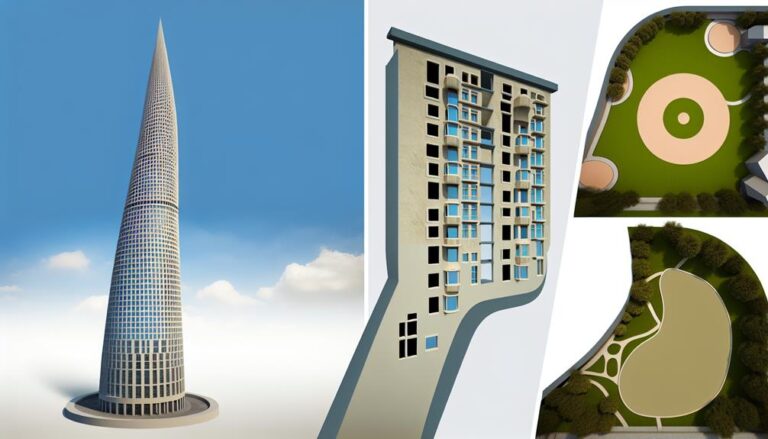Why Is Concrete Leveling Beneficial in Construction?
Concrete leveling in construction is highly beneficial for you. It's a cost-effective way to fix uneven surfaces without needing to replace entire slabs, saving you both time and money. The process also enhances the longevity of the structure by preventing cracks and wear, thereby maintaining structural integrity. Safety is improved as trip hazards are eliminated. Additionally, it's a versatile solution adaptable to various construction projects. Plus, it's environmentally friendly, reducing waste and energy. Stick with us, and we'll dive into a wealth of information on this game-changing construction method.
Understanding Concrete Leveling
Let's dive right in and take a closer look at what concrete leveling really is. It's a process used in construction to correct uneven concrete surfaces by altering the foundation they sit on. It's a lifesaver when you're dealing with sunken or tilted concrete slabs, a common problem due to soil movement and moisture content changes beneath the slab.
You might be wondering, how's it done? First, small holes are drilled into the uneven concrete slab. Then, a mixture, often made of cement and soil, is pumped under the slab. As it fills the void underneath, it raises the slab, leveling it with the surrounding surface. Once the desired level is reached, the holes are sealed, and voila, you have a perfectly level concrete slab.
It's a precise, controlled process, not a quick fix. A skilled professional is required to ensure the slab is leveled properly, preventing further issues down the line. So, next time you're faced with an uneven concrete surface, remember the solution isn't as daunting as you might think. Concrete leveling is your answer.
Cost-Effectiveness of Concrete Leveling
Now that you understand what concrete leveling is, it's time to consider why it's such a cost-effective solution for uneven concrete surfaces. First off, it's much cheaper than replacing the entire slab. You're looking at a fraction of the cost. Plus, it's a quicker process, meaning you'll save on labor costs as well.
The table below provides a comparative view:
| Method | Cost |
|---|---|
| Concrete Replacement | High |
| Concrete Leveling | Low |
Not only will you spend less, but you'll also avoid the inconvenience of a lengthy construction period. In contrast, concrete leveling can be done in a few hours, and the surface is ready for use almost immediately.
You might be tempted to ignore uneven concrete surfaces, but this can lead to more extensive damage and even higher costs in the long run. So, it's always better to address the issue promptly with a cost-effective solution like concrete leveling.
Concrete Leveling and Longevity
In addition to being cost-effective, concrete leveling significantly enhances the longevity of your surfaces. By smoothing out the inconsistencies and irregularities in your concrete, it reduces the wear and tear on your surfaces. Imagine it, the smoother the surface, the less friction and consequently less erosion. Over time, you'll notice that your concrete surfaces don't degrade as quickly as they used to.
The longevity you get from concrete leveling isn't just about maintaining a visually pleasing surface. It's also about keeping the structural integrity intact. Concrete leveling helps in preventing the formation of cracks, which can eventually lead to serious structural problems if left unchecked. So, it's not just saving you money on repairs in the long run, but also ensuring the strength and durability of your structure.
Furthermore, the longevity benefits of concrete leveling extend to the surrounding soil. By leveling the concrete, you're also helping to prevent soil erosion underneath. This means that the ground beneath your concrete stays firm and stable, further increasing the lifespan of your surfaces.
In essence, concrete leveling is an investment that pays off in the long run, contributing to the durability and longevity of your structures.
Safety Benefits of Concrete Leveling
Boosting safety levels, concrete leveling eliminates trip hazards by smoothing out uneven surfaces in your construction project. Uneven concrete isn't just unsightly, it's downright dangerous. It's an accident waiting to happen – a trip, a fall, or even worse.
With concrete leveling, you're reducing these risks substantially. It creates a safer environment for everyone involved, from your construction workers to the eventual inhabitants of the building. It's not just about avoiding lawsuits or insurance claims – it's about protecting the well-being of people. And that's priceless, isn't it?
Another safety benefit of concrete leveling is improved mobility. By creating a smoother, more even surface, movement becomes easier and more efficient. This is particularly important in areas like walkways, driveways, and parking lots where foot and vehicle traffic is high. You're essentially eliminating the risk of injuries due to slips, trips, and falls.
Lastly, concrete leveling helps avoid potential damage to equipment or vehicles. Uneven surfaces can cause wear and tear on machinery, leading to costly repairs or replacements. With concrete leveling, you're not just building safer spaces, you're also saving money in the long run.
Enhancing Structural Integrity
While ensuring safety through concrete leveling is paramount, it's just as important to consider how this process bolsters the structural integrity of your construction project. Uneven concrete isn't just a safety hazard, it can also undermine the overall stability of structures. Concrete leveling, when done correctly, can address this issue and significantly strengthen your project's foundation.
By leveling the concrete, you're ensuring that the weight of your structure is evenly distributed. This reduces stress on certain parts of the construction, preventing cracks and structural damage over time. It's an effective way of prolonging the lifespan of your construction project, ultimately saving you from costly repairs in the future.
Moreover, a level concrete surface enhances its resistance to environmental stressors such as rain, wind, and temperature variations. It ensures that your structure can withstand these elements without compromising its structural integrity. Concrete leveling also improves the aesthetics of your project, contributing to a more polished and professional look.
Versatility of Concrete Leveling
You'll find that concrete leveling offers unparalleled versatility in construction, adapting to various types of projects with ease. Whether it's a residential project, commercial development, or a public works endeavor, concrete leveling has you covered. It's this flexibility that makes it a go-to solution for builders and contractors alike.
| Project Type | Benefits of Concrete Leveling |
|---|---|
| Residential | Ensures a stable and level foundation, mitigating future structural problems |
| Commercial | Can handle large-scale leveling needs, critical in commercial construction |
| Infrastructure | Ideal for roads, bridges, and public facilities requiring high durability |
| Industrial | Withstands heavy machinery, offering long-term stability |
| Renovation | Ideal for correcting uneven surfaces, making old structures safe and functional |
Concrete leveling doesn't just cater to a range of construction tasks; it's also compatible with various materials. It can work in tandem with wood, steel, or even glass, reinforcing the overall structure. What's more, it allows you to rectify any construction errors, ensuring that your project is not only aesthetically pleasing but safe as well. With the versatility of concrete leveling, you're assured of a method that can adapt to different demands and materials. Don't limit your project's potential; embrace the adaptability of concrete leveling.
Time Efficiency in Construction
In construction, time is a crucial factor, and concrete leveling significantly cuts down on project duration. This method is a real game-changer when it comes to efficiency. Not only does it speed up the process, it also eliminates the need for extensive manual labor, saving you time and money.
Imagine completing a project well ahead of schedule because you've reduced the time spent on leveling the foundation. By using concrete leveling, you're able to move forward to the next construction phase faster. You're not bogged down by time-consuming traditional methods. It's a win-win situation.
Concrete leveling can be done in a fraction of the time it takes for traditional methods, giving you the edge in meeting tight deadlines. It provides a smooth, even surface quickly, ensuring you're ready to progress with the build at a quicker pace.
Environmental Impact of Concrete Leveling
Beyond efficiency, concrete leveling also offers significant environmental benefits that can't be ignored. It's not just about getting the job done quicker or ensuring a safer and more stable build. You're also making a positive impact on the environment.
Here are four key ways concrete leveling benefits the environment:
- Reduces Waste: Concrete leveling allows you to repair rather than replace your existing concrete. This means less waste ends up in landfills.
- Saves Energy: The process is far less energy-intensive compared to other methods of concrete repair or replacement. Thus, you're reducing your carbon footprint.
- Preserves Natural Resources: By reusing your existing concrete, you're lessening the demand for new materials. This helps preserve natural resources that would otherwise be used.
- Decreases Pollution: Concrete leveling doesn't involve the transportation of new materials or the removal of old ones. This cuts down on emissions associated with these activities.
Frequently Asked Questions
What Are the Different Methods Used in Concrete Leveling?
In concrete leveling, you'll encounter different methods. Mudjacking is one, where a mud mixture is pumped under the concrete.
There's also slabjacking, which is similar to mudjacking but uses a concrete mix.
And then there's polyurethane foam injection, which fills voids under the concrete.
Each method has its own benefits, so you'd choose based on your project's specific needs.
Regardless of method, it's a cost-effective way to address uneven concrete.
Can Concrete Leveling Be Done on Old, Existing Structures?
Absolutely, you can level old, existing structures. It's a common misconception that concrete leveling is only for new construction. In fact, over 60% of concrete leveling jobs are on structures over 20 years old.
How Does the Weather Affect the Process of Concrete Leveling?
Weather greatly impacts concrete leveling. In extreme cold, concrete won't cure properly, leading to weak structures. Too much heat can cause it to dry out and crack. Rain can dilute the mixture, making it less stable.
What Type of Maintenance Is Required After Concrete Leveling?
After concrete leveling, you'll find maintenance is minimal. It's important to keep water drainage away from the area to prevent soil erosion underneath. Don't place heavy loads on the leveled concrete immediately. Give it time to fully cure.
Regular checks for cracks or shifts can help catch potential problems early. Remember, resealing the concrete every few years helps maintain its durability and appearance. It's less hassle than you'd think!
Is There Any Special Training Required for Professionals to Perform Concrete Leveling?
Just like a chef needs knowledge to whip up a gourmet dish, professionals require special training to perform concrete leveling. It's not a walk in the park. They must understand the mixture, application, and techniques used in concrete leveling.
This expertise ensures a smooth, level surface that's durable and safe. So yes, proper training is a must for those in the construction industry wishing to specialize in concrete leveling. It's a craft that demands skill and precision.
Conclusion
So, you see, concrete leveling is far from being a mere 'leveling the playing field' in construction. It's cost-effective, enhances longevity and safety, strengthens structural integrity, and is versatile and time-efficient.
It's akin to playing chess on a perfectly flat board, making strategic moves with precision and confidence. Plus, it's environmentally friendly too.
So, don't you think it's time to level up your construction game with concrete leveling?

